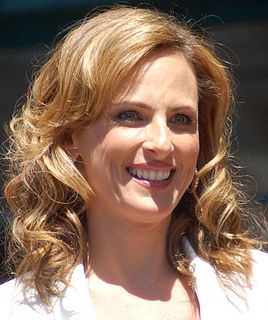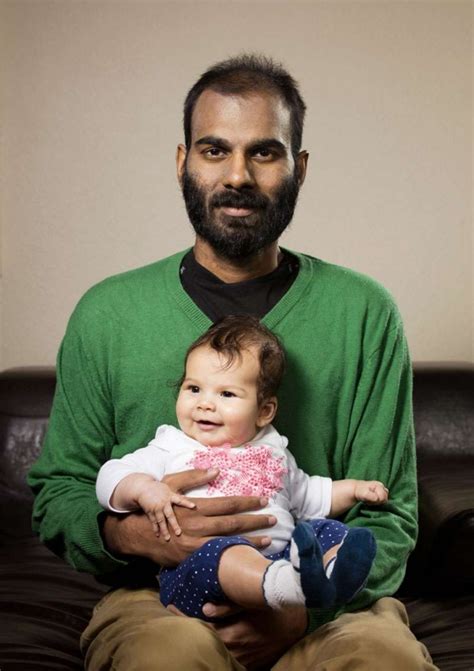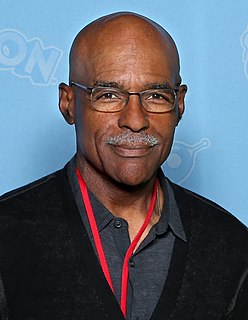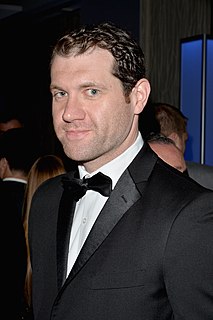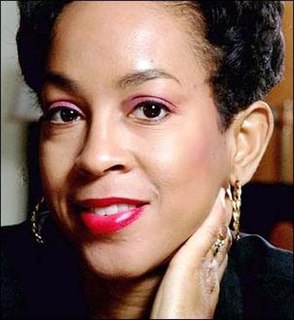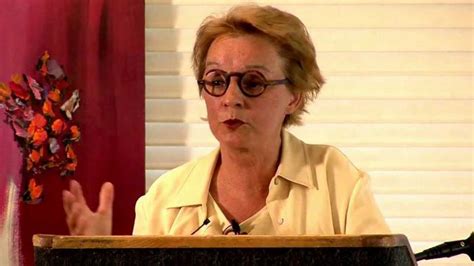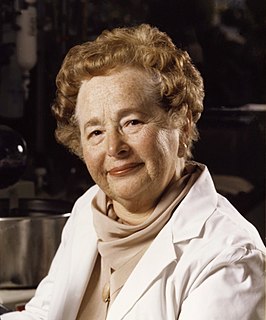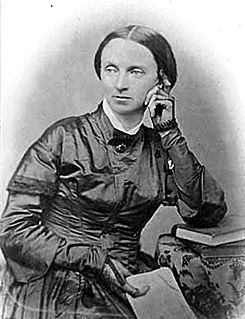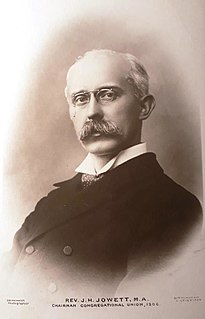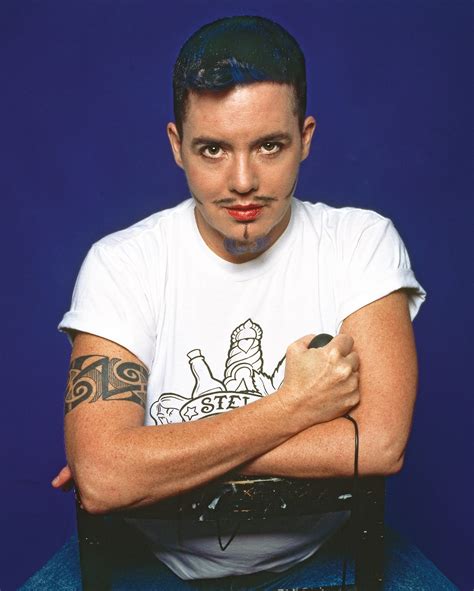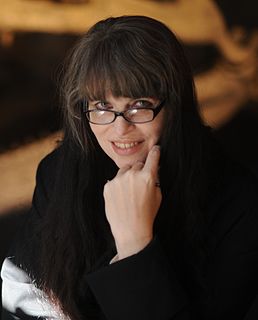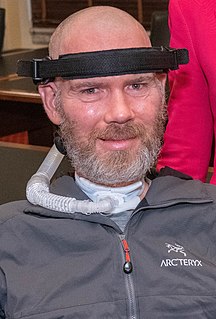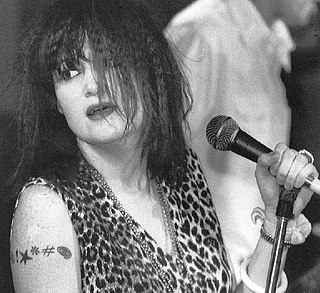Top 287 Diagnosis Quotes & Sayings - Page 5
Explore popular Diagnosis quotes.
Last updated on December 18, 2024.
For people who are afraid to talk about cancer, for people who are afraid to communicate with their loved ones about it, and for the people who want to pretend cancer doesn't exist, either delaying diagnosis or not getting regular checkups, the consequences can be fatal. Doing nothing about cancer will kill you.
The ultrasound that has application not only in space for a long mission or for a mission to the Moon or Mars, but also in remote areas on the Earth. Not even just - I'm not even talking about expeditions like to the Antarctic, but just a remote area, a small town somewhere. The local doctor is not going to know everything, and so if that person can link in with a diagnostic ultrasound to the hospital in New York City through the internet, then they can do a very quick diagnosis of something that's wrong with someone that's in this remote area.
I think the mild Aspergers have always been there. You see, Asperger's diagnosis did not become common in the U.S. until the early '90s. And an Aspergers has more or less normal speech development and they've always been here, that hasn't changed. I can think back to when I was in high school, this is 40 years ago, I could name kids in my high school class and college class that, today, would be diagnosed as Aspergers.
I was diagnosed with an early, early stage of prostate cancer. I was almost a vegetarian then. I was heading that direction. What pushed me over the edge, was the doctor who did the diagnosis. He said in a discussion about prostate cancer that he had never seen a vegetarian with prostate cancer. And this is not a holistic doctor, this is a regular, mainstream doctor. And I was just blown away.
Had there been a Lunatic Asylum in the suburbs of Jerusalem, Jesus Christ would infallibly have been shut up in it at the outset of his public career. That interview with Satan on a pinnacle of the Temple would alone have damned him, and everything that happened after could have confirmed the diagnosis. The whole religious complexion of the modern world is due to the absence from Jerusalem of a Lunatic Asylum.
Staying true to yourself and trusting your instincts is very important. I've learned this both through creating music, where I've always stayed focused on recording music that is true to who I am and to my fans, and through my recent health struggles, where I knew something more was going on than what I was hearing from different doctors; I had to trust myself and continue to pursue a diagnosis.
We're thinking about how we can use Facebook as an early indicator of dementia. Family and friends can see how, for example, the person is talking about a journey they didn't go on or having lunch with a friend they didn't have lunch with. Can we use those as early alerts that maybe the person should see a doctor? The most important thing is early diagnosis.
Once my loved one accepted the diagnosis, healing began for the entire family, but it took too long. It took years. Can't we, as a nation, begin to speed up that process? We need a national campaign to destigmatize mental illness, especially one targeted toward African Americans. The message must go on billboards and in radio and TV public service announcements. It must be preached from pulpits and discussed in community forums. It's not shameful to have a mental illness. Get treatment. Recovery is possible.
When a physician is called to a patient, he should decide on the diagnosis, then the prognosis, and then the treatment. ... Physicians must know the evolution of the disease, its duration and gravity in order to predict its course and outcome. Here statistics intervene to guide physicians, by teaching them the proportion of mortal cases, and if observation has also shown that the successful and unsuccessful cases can be recognized by certain signs, then the prognosis is more certain.
Thanks to the scientific method, most people in "developed" countries have an outlook of mild deism. We assume things like weather and disease operate according to fixed natural laws. Every so often, though, problems impinge on us so directly that we stretch beyond that mildly deistic stance and ask God to intervene. When a drought drags on too long, we pray for rain. When a young mother gets a diagnosis of cervical cancer, we solicit prayers for her healing. We beseech God as if trying to talk God into something God otherwise might not want to do.
A myth is a fantasy, a preferred lie, a foundational story, a hypnotic trance, an identity game, a virtual reality, one that can be either inspirational or despairing. It is a story in which I cast myself; it is my inner cinema, the motion picture of my inner reality - one that moves all the time. No diagnosis can fix the myth, no cure can settle it, because our inner life is precisely what, in us, will not lie still.
I think it's a very valuable thing for a doctor to learn how to do research, to learn how to approach research, something there isn't time to teach them in medical school. They don't really learn how to approach a problem, and yet diagnosis is a problem; and I think that year spent in research is extremely valuable to them.
I spent the first summer after my diagnosis creeping about in giant sun hats and tents, cursing the sun, staying inside as much as possible. Now I am beginning to think the most important thing is educated sun exposure, because the melanomas of today are not caused by today's sunbathing, but by our childhoods and early adolescence.
"The Diagnosis" is by far my most ambitious book. I such great hopes for it... there was so much I wanted to do with the book. I was extremely insecure about it for several years. Just didn't know whether I would finish the book much less for it to come close to what I intended. I think that for any novel you never know exactly how the book is going to turn out...
The diagnosis of drunkenness was that it was a disease for which the patient was in no way responsible, that it was created by existing saloons, and non-existing bright hearths, smiling wives, pretty caps and aprons. The cure was the patent nostrum of pledge-signing, a lying-made-easy invention, which like calomel, seldom had any permanent effect on the disease for which it was given, and never failed to produce another and a worse. Here the care created an epidemic of forgery, falsehood and perjury.
I have been exposed to a great deal of the issues surrounding PTSD, but what I have learned that is most relevant to my work on Mercy Street is that this illness is timeless. We didn't have a diagnosis for PTSD in the Civil War like we do today, but those men and women definitely suffered from similar psychological wounds as our men and women in uniform do today.
Gratitude is a vaccine, an antitoxin, and an antiseptic. This is a most searching and true diagnosis. Gratitude can be a vaccine that can prevent the invasion of a disgruntled attitude. As antitoxins prevent the disastrous effects of certain poisons and diseases, thanksgiving destroys the poison of faultfinding and grumbling. When trouble has smitten us, a spirit of thanksgiving is a soothing antiseptic.
It is man's intrinsic and irreducible self-responsibility to humanize himself, to exercise his entire range of rational and moral resources to raise his mode of being and seeing and acting above not just that of animals, but also above that of the majority of subhuman (never to be self-realized) humans who will never draw themselves into a self-punishing position of focal self-diagnosis and self-accountability.
The doctors advised me not to have even one. My health was still not good, and they said that pregnancy might be fatal. If they hadn't said that to me, maybe I wouldn't have got married. But that diagnosis provoked me, it infuriated me. I answered, 'Why do you think I'm getting married if not to have children? I don't want to hear that I can't have children; I want you to tell me what I have to do in order to have children!'
On moral grounds, I think that if you believe a certain outcome is a very possible outcome, you have an obligation to tell people that. With global warming, the probability of a bad outcome if we stay on our current emission trends is incredibly high. If you know a bad outcome is likely to happen, what right do you have not to communicate that? You go into a doctor's office, what are they going to do - not tell you the diagnosis?
As a gender variant visual artist I access 'technologies of gender' in order to amplify rather than erase the hermaphroditic traces of my body. I name myself. A gender abolitionist. A part time gender terrorist. An intentional mutation and intersex by design, (as opposed to diagnosis), in order to distinguish my journey from the thousands of intersex individuals who have had their 'ambiguous' bodies mutilated and disfigured in a misguided attempt at 'normalization'. I believe in crossing the line as many times as it takes to build a bridge we can all walk across.
I am concerned that Millennials are stressed out. They have a higher suicide rate than other generations at their same age. They have the highest diagnosis of depression at their age than other generations. I think we have raised a generation that does not know how to be sad. They are programmed for success and the threat of failure is devastating.
Hauntings are memes, especially pernicious thought contagions, social contagions that need no viral or bacterial host and are transmitted in a thousand different ways. A book, a poem, a song, a bedtime story, a grandmother's suicide, the choreography of a dance, a few frames of film, a diagnosis of schizophrenia, a deadly tumble from a horse, a faded photograph, or a story you tell your daughter.
You have a long history of changes in diagnosis, from no touching to touching, to assessing acoustics and visuals. But visual is a problem, because if you're a living being you can't see beyond the surface of the skin. Now you don't have that problem. Laparoscopic surgery, inserting a camera into the body, is sometimes called "Nintendo surgery" - the best training for laparoscopic surgeries has actually been video games.
"The Diagnosis" had ten drafts of very significant changing, where I went through the whole book, wholesale and changed everything. Then the last year or so it was making small changes. I would do something and let it sit for three months... just brood about and decide I needed to slightly change something here or there. Or one character wasn't quite right. But I think everybody goes through this.
The biographies of the great men see their excesses as signs of their greatness. But Jean Rhys, in her biography, is read as borderline; Anaïs Nin is borderline; Djuna is borderline; etc. etc. Borderline personality disorder being an overwhelmingly gendered diagnosis. I write in Heroines: “The charges of borderline personality disorder are the same charges against girls writing literature, I realize - too emotional, too impulsive, no boundaries."
My father enabled me to really believe in myself. And yet I've heard very similar stories - from many, many people. It's the way he approached his life. The way he approached his life - he was the eternal optimist. He was the most optimistic person that I've ever known. Even in the face of this diagnosis with cancer, he was filled with optimism about what he could do and what he could accomplish.
If you were to rush into this room right now and announce that you had struck a deal - with God, Allah, Buddha, Christ, Krishna, Bill Gates, whomever - in which the ten years since my diagnosis could be magically taken away, traded in for ten more years as the person I was before - I would, without a moment's hesitation, tell you to take a hike.
I have been diagnosed with Amyotrophic Lateral Sclerosis (ALS). It's a terminal disease with an average lifespan of two to five years post-diagnosis, and scientists don't know what causes it. ALS prevents your brain from talking to your muscles. As a result, muscles die. As a result, every 90 minutes people die. I am a person.
We have equated a cancer diagnosis to 'death,' but we look at diabetes as 'something that you get when you get older.' But look at diabetes - it's the leading cause of limb amputation, heart disease, kidney failure. Many people don't equate diabetes with these other destructive things. I didn't equate it to those until I started reading about it.
People say, "I have heart disease," not "I am heart disease." Somehow the presumption of a person's individuality is not compromised by those diagnostic labels. All the labels tell us is that the person has a specific challenge with which he or she struggles in a highly diverse life. But call someone "a schizophrenic" or "a borderline" and the shorthand has a way of closing the chapter on the person. It reduces a multifaceted human being to a diagnosis and lulls us into a false sense that those words tell us who the person is, rather than only telling us how the person suffers.
Every one of us is called upon, perhaps many times, to start a new life. A frightening diagnosis, a marriage, a move, loss of a job...And onward full-tilt we go, pitched and wrecked and absurdly resolute, driven in spite of everything to make good on a new shore. To be hopeful, to embrace one possibility after another--that is surely the basic instinct...Crying out: High tide! Time to move out into the glorious debris. Time to take this life for what it is.
When people get cancer now, the first thing you do is you go to some doctors to get some advice, figure out what to do. People live a long long life after a cancer diagnosis. Not that it's not scary. The people I know have done so many stupid things. And they're still alive. Just being alive at this point is kind of icing on the cake.
People with what we call mental illness can indeed serve well, and people who have no discernible mental illness - and that may be true of Trump - may not be able to serve, may be quite unfit. So it isn't always the question of a psychiatric diagnosis. It's really a question of what psychological and other traits render one unfit or dangerous.
We should not be discouraged or depressed by our shortcomings. No one is without weakness. As part of the divine plan, we are tested to see whether we master weakness or let weakness master us. Proper diagnosis is essential to proper treatment. The Lord gave us this remarkable assurance: "Because thou hast seen thy weakness thou shalt be made strong" (Ether 12:37). But wishing for strength won't make us strong. It takes faith and work to shore up a weakened cord of integrity.
To find the cause of our ills in something outside ourselves, something specific that can be spotted and eliminated, is a diagnosis that cannot fail to appeal. To say that the cause of our troubles is not in us but in the Jews , and pass immediately to the extermination of the Jews, is a prescription likely to find a wide acceptance.
I just took [my cancer diagnosis] as bad luck, basically. It did strike me almost immediately, my atheist sort of thing kicked in and I thought "ha, if I was a God-botherer, I'd be thinking, why me God? What have I done to deserve this?" and I thought at least I'm free of that, at least I can simply treat it as bad luck and get on with it.
Most of us have developed a fairly extensive vocabulary for describing pain, as though the journal were a doctor requiring much detail to make the correct diagnosis. The roundness of the spiritual journey cannot be expressed without developing an equally extensive vocabulary for talking to ourselves and others about the nature of wonder, joy, ecstasy, love, transfiguration.
Christianity was created by some decadent and degenerated Romans as a tool of oppression, in the late Roman era, and it should be treated accordingly. It is like handcuffs to the mind and spirit and is nothing but destructive to mankind. In fact I don't really see Christianity as a religion. It is more like a spiritual plague, a mass psychosis, and it should first and foremost be treated as a problem to be solved by the medical science. Christianity is a diagnosis. It's like Islam and the other Asian religions, a HIV/AIDS of the spirit and mind.
Democrats are just as divided as Republicans these days. Embarrassed by their election losses, they are fighting over everything from their diagnosis of why Trump beat them in 2016 to how much to stake themselves on an oust-him-at-all-costs strategy now. Their internal battles may not be as sexy as the unprecedented hostile takeover of the GOP by an outsider president not beholden to it - yet they are just as consequential.
But when we reduce sex to a function, we also invoke the idea of dysfunction. We are no longer talking about the art of sex; rather, we are talking about the mechanics of sex. Science has replaced religion as the authority; and science is a more formidable arbiter. Medicine knows how to scare even those who scoff at religion. Compared with a diagnosis, what's a mere sin? We used to moralize; today we normalize, and performance anxiety is the secular version of our old religious guilt.
I have late-stage Lyme disease. I was misdiagnosed for many, many years and told I had lupus, MS, Crohn's disease, even degenerative arthritis. And finally in 2010, I got the correct diagnosis, because on the last Le Tigre tour, I was having several seizures a day and at times not being able to brush my own teeth.
The strange, wonderful stories of Doctor Olaf van Schuler's Brain introduce us to the tremendously gifted Kirsten Menger-Anderson, a writer whose subject is nothing less than the diagnosis and cure of the human malady. We follow twelve generations of New York City's Steenwycks family through their forays into phrenology, mesmerism, radium therapy and similar misadventures, a historically rich narrative that Menger-Anderson delivers in striking, elegant prose and with a sure eye for detail. This is a remarkable debut by a writer to watch.
